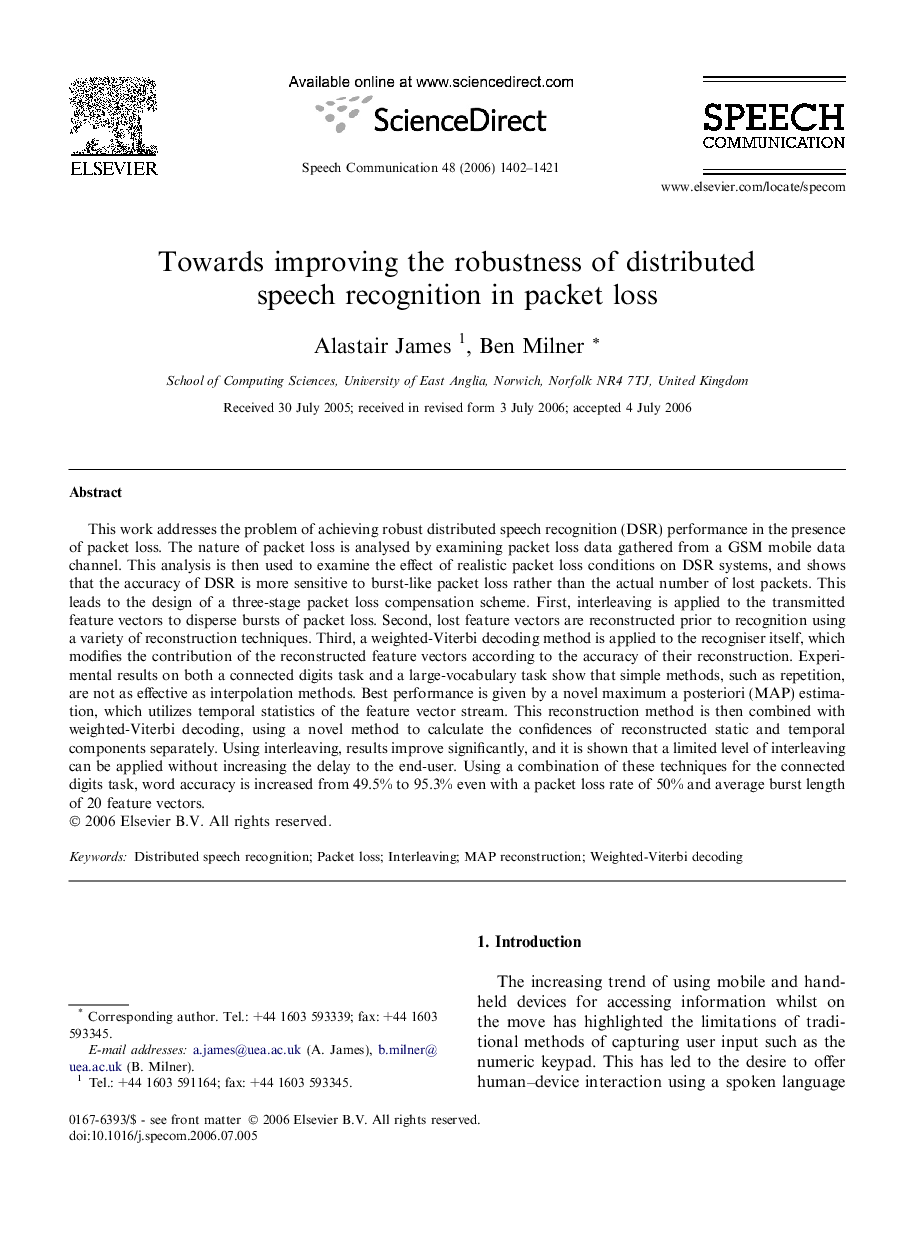| Article ID | Journal | Published Year | Pages | File Type |
|---|---|---|---|---|
| 568969 | Speech Communication | 2006 | 20 Pages |
This work addresses the problem of achieving robust distributed speech recognition (DSR) performance in the presence of packet loss. The nature of packet loss is analysed by examining packet loss data gathered from a GSM mobile data channel. This analysis is then used to examine the effect of realistic packet loss conditions on DSR systems, and shows that the accuracy of DSR is more sensitive to burst-like packet loss rather than the actual number of lost packets. This leads to the design of a three-stage packet loss compensation scheme. First, interleaving is applied to the transmitted feature vectors to disperse bursts of packet loss. Second, lost feature vectors are reconstructed prior to recognition using a variety of reconstruction techniques. Third, a weighted-Viterbi decoding method is applied to the recogniser itself, which modifies the contribution of the reconstructed feature vectors according to the accuracy of their reconstruction. Experimental results on both a connected digits task and a large-vocabulary task show that simple methods, such as repetition, are not as effective as interpolation methods. Best performance is given by a novel maximum a posteriori (MAP) estimation, which utilizes temporal statistics of the feature vector stream. This reconstruction method is then combined with weighted-Viterbi decoding, using a novel method to calculate the confidences of reconstructed static and temporal components separately. Using interleaving, results improve significantly, and it is shown that a limited level of interleaving can be applied without increasing the delay to the end-user. Using a combination of these techniques for the connected digits task, word accuracy is increased from 49.5% to 95.3% even with a packet loss rate of 50% and average burst length of 20 feature vectors.
